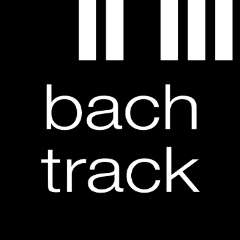The air of expectation was tangible at the Opéra Bastille in Paris on Monday night as the curtain went up on the second scene to reveal Anna Netrebko, dressed in a long white dress to play Juliet in Bellini's “I Capuleti e I Montecchi” (Capulets and Montagues)..
The audience were not disappointed. The ideal operatic soprano must combine purity and beauty of tone with clarity of diction, dynamic control, stage presence, dramatic feel and, particularly in an enormous hall like the Opéra Bastille, a generous helping of simple, raw power. Most of the time, even with established stars, it's too much to ask: perfect tone has been achieved by losing consonants, the power comes at the cost of a harsh edge, or a clear, precise, pretty voice lacks the strength to fill a theatre.
Netrebko may not (yet) have the command of the stage of a Callas, but vocally, she ticked every box. The power was there with plenty to spare – she was clearly audible above a chorus of forty men singing fortissimo. Her dynamic control seems effortless, and her timbre is warm, smooth, melting. And her looks are such as to leave every man in the audience weak at the knees. Her acting, seen most clearly in the scene where she is a political pawn tossed between her father and Romeo, was more than adequate. And she's still very young, with more to come. Truly, she's going to be one of the all-time greats.
No mezzo role can quite match the experience of hearing a great soprano nail the high notes and trills right in the middle, but Joyce DiDonato's Romeo came about as close as you can get. The final duet between Romeo and Juliet was transcendingly beautiful. The chemistry between DiDonato and Netrebko was evident from warmth between them at the curtain call as well as from the performances, and DiDonato's duet with Matthew Polenzani's's Tybalt was another high point.
All this said, “I Capuleti e I Montecchi” is something of a strange beast. Felice Romani's libretto is very dark indeed, and has none of the breadth or relief of the Shakespeare version. Gone are Paris, Mercutio, the Nurse, the Prince, the crowd scenes, and there's very little actual romance between the two lovers. What remains is a single-minded focus on the politics and dynamics of revenge and the blood feud. This sits oddly with Bellini's beautiful, intensely romantic music, which frequently strays into rather cheerful rum-ti-tum march tunes. While the headline arias have some heartstopping music, some of the intervening material just seems out of place. The programme notes suggested that the thinning down of the plot was necessary to give breathing space to the music, but I couldn't help feeling that the dramatic interest had been thinned close to breaking point.
The opera does, however, fit wonderfully with the setting in the Opéra Bastille. The combination of lush traditional velvet costumes with a spartan, almost Brechtian stage was extraordinarily effective, and one can't help being impressed by the sheer scale, with a forty strong chorus and an enormous stage and hall. The acoustic of the hall is wonderful for the voices, harp and woodwind, even if the lower register of strings, horns and percussion sounded rather more blurred than one might have liked.
With Paris just over two hours away on a smooth train ride, tickets priced at well under Covent Garden, and, most of all, this kind of quality on show, I think more people are going to start making the trip.
David Karlin 3rd June 2008


